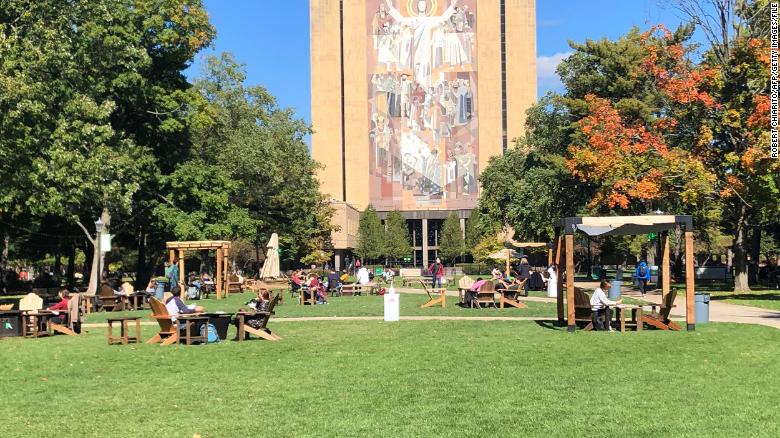As colleges and universities deal with coronavirus outbreaks, the question of whether these institutions made the right decision in bringing students back on campus continues to be a topic of national conversation.
Now, a new report from the Pew Research Center is shedding light on how some Americans feel about this issue
About 50% of adults said that it was the right decision to bring students back for in-person instruction while 48% said it was the wrong decision, according to the survey, which was published on Monday.
The survey also found that there were deep partisan divides among respondents, with 74% of Republicans and Republican leaners were more likely to say that bringing students back was the right course of action compared to 29% of Democrats and Democratic leaners.
Overall, the American public continues to have negative views of how colleges and universities are doing these days — similar to 2018 trends, according to Pew.
This year, 56% of Americans expressed that higher education was going in the wrong direction compared to the 41% who said it was going in the right direction, according to the survey.
Online learning vs in-person learning
As coronavirus cases surged in the spring, colleges pivoted to virtual learning to comply with statewide stay-at-home orders. The institutions had to refund room and board fees to students, pay for the costs of moving to remote learning and continue to compensate faculty and staff members.
So, when faced with the decision to resume in-person learning in the fall, many colleges had limited options: they could reopen with safety measures in place or face a huge financial hit with online learning.
Even as virtual learning has become more prevalent this year because of the coronavirus pandemic, Americans were still uncertain about the educational value of this type of learning compared to in-person instruction, according to the Pew survey.
In fact, 68% of adults said that an online course did not measure up an in-person course, while only 30% of adults said otherwise. And, although majorities of Republicans and Democrats express this sentiment, Democrats were more likely support online classes (33%) than their Republicans counterparts (26%).
Among college graduates, online classes were not as popular as in-person ones. About 75% of respondents with bachelor’s degrees or higher said online classes did not provide “an equal educational value.”
In addition, 67% of respondents with some college education also expressed this view, as well as 64% of those with a high school diploma or less.
This September, 11.2 million students between the ages of 18 to 24 years old were enrolled in college — a slight decline from last year’s 11.5 million, according to Pew’s analysis of Census Bureau data.
>>>details


